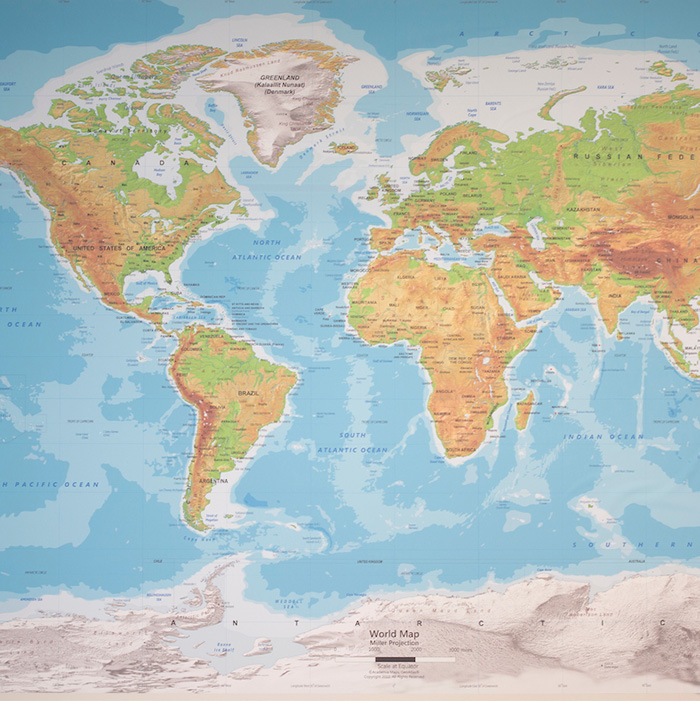B.S. Geology
Majoring in Geology prepares students for further graduate work in the geosciences, as well as careers in the environmental industry, petroleum, mining, government, or education.
Do you enjoy physical as well as intellectual challenges? Do you like to travel to interesting locations around the world? Does working with others who have diverse interests and backgrounds to solve multifaceted problems appeal to you? If so, then consider joining us for a major in geology, earth science or environmental earth science, leading to an exciting career in geological or environmental sciences.
Majoring in Geology prepares students for further graduate work in the geosciences, as well as careers in the environmental industry, petroleum, mining, government, or education.
The major in Environmental Earth Science is designed for students interested in Earth systems and processes and in applying geoscience pursuits to environmental issues, problems and solutions.
The Department of Geology and Environmental Earth Science offers a minor in Geology. As with all minors, this will satisfy the Miami Plan Thematic Sequence requirement. You are welcome to explore many possible themes for this minor covering various aspects of Earth and Environmental Sciences.

A student may register for GLG 498 in their senior year, as long as his/her grade point average is at least 3.0 for courses required in the geology major.
The Senior Thesis will permit the exceptional Geology major to embark upon a geological research program of his/her choosing. It will provide the student an opportunity to perform an in-depth study using the skills he/she has developed as a major in geology
The student must complete an independent research project, to be conducted under close supervision with a faculty member.
This course will require considerable independent data collection and analysis under faculty supervision. Each student may register for 3-6 credit hours with a maximum of 12 counting towards the Departmental Honors Degree.
After a research project and advisor have been decided upon, the student and advisor must pick a committee of at least two faculty members for thesis review. Once thesis has been reviewed and deemed acceptable, the student must present his/her thesis at a formal oral presentation. This presentation can take place in the department as a "seminar", at the Undergraduate Research Forum conducted by the Office for the Advancement of Research and Scholarship (OARS) or at a national meeting such as GSA or AGU.
This thematic sequence provides an introduction to the essential role water plays in supporting life on Earth, including the origin of water, its physical/chemical characteristics, how these characteristics combine to make life possible on the continents and in the oceans, and details concerning the hydrologic cycle. Introduces the economic, legal and political ramifications of water use in the U.S.
Tier 1. Choose one of the following:
GLG 111 The Dynamic Earth (3 hours)
GLG 121 Environmental Geology (3 hours)
GLG 141 Geology of U.S. National Parks (3 hours)
Tier 2.
GLG 244 Oceanography (4 hours)
Tier 3. Chose one of the following:
GEO 425 Hydrogeography (3 hours)
GLG 307 Water and Society (3 hours)
GLG 335 Ice Age Earth (3 hours)
GLG 408 Introduction to Hydrogeology (4 hours)
BIO 463 Limnology (4 hours)
Note: Not open to majors in the Department of Geology and Environmental Earth Science
The Geology Department offers one thematic sequence; The Water Planet (TGLG-2). Please contact Todd Dupont at 513-529-9734 or via email at dupontt@MiamiOH.edu or Leanna Smith at 513-529-3216 or via email at smithlc6@MiamiOH.edu to enroll or to get more information.
Course Hours: 6
Approximate dates for 2021: June 8 - July 13
Instructor: Brian Currie
Description:
Students identify, classify, and interpret geologic features and synthesize and communicate geologic interpretations. Students work outdoors six to eight hours each day and individually create several geologic maps and cross-sections using pace and compass, topographic, air photo and satellite image bases with GPS units (satellite navigation). Geologic mapping and rock interpretation techniques are the subject of evening discussions. Taught in the northern U.S. and southern Canadian Rockies and at the Miami University Geology Field Station in Dubois, Wyoming.
For more information, email to fieldgeology@MiamiOH.edu.
Miami's Department of Geology and Environmental Earth Science offers three programs for advanced study (Ph.D., M.S., and M.A.).